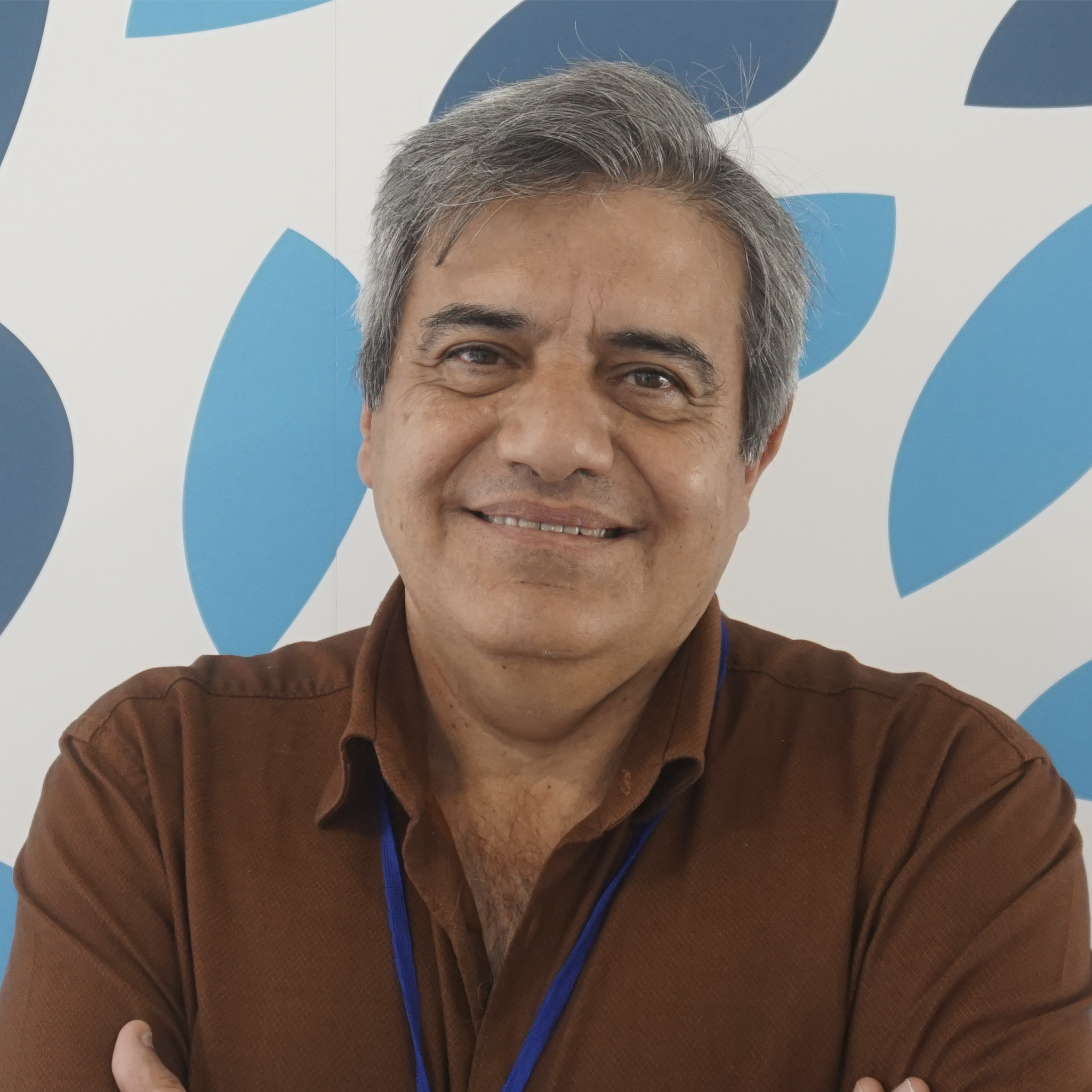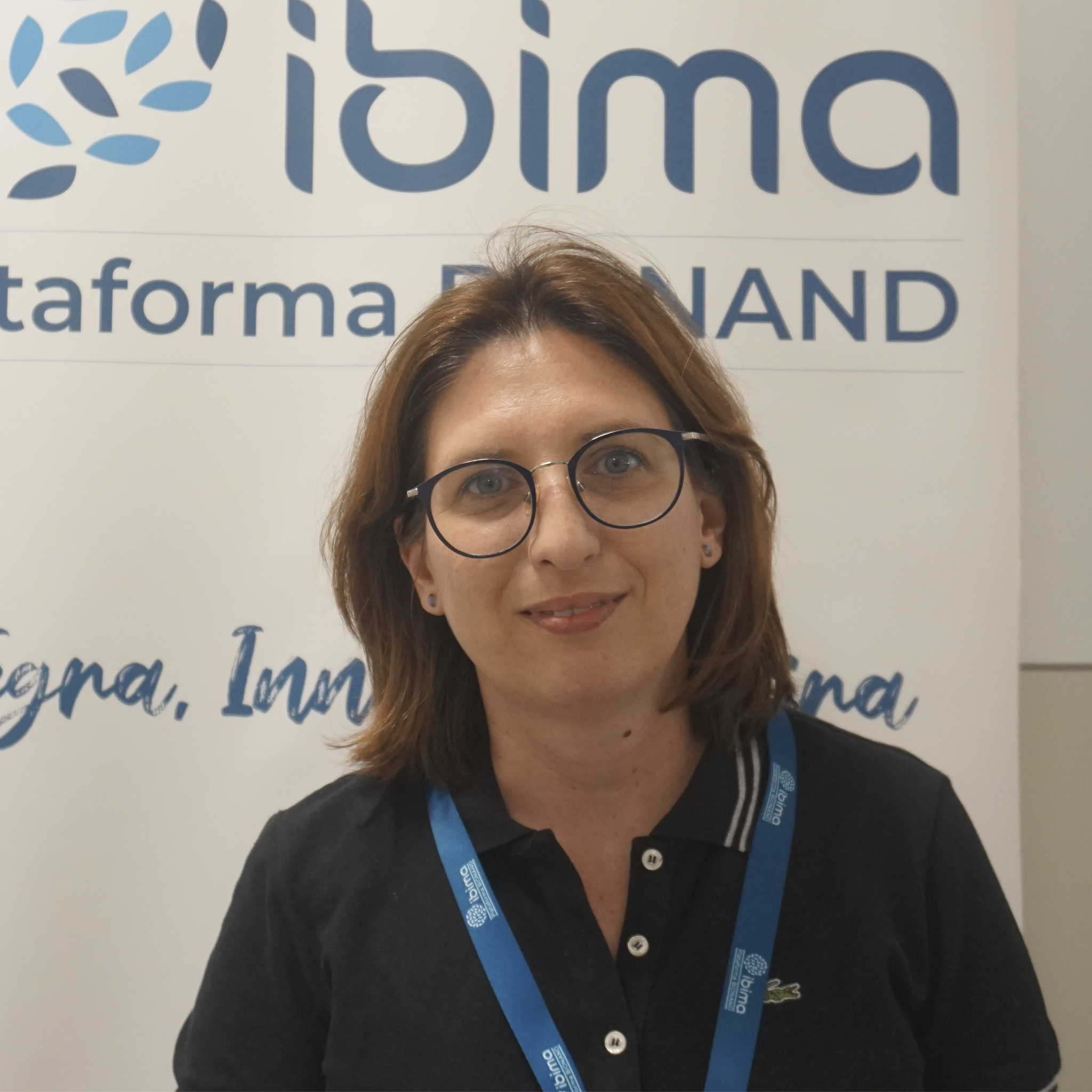Obesidad, diabetes y sus comorbilidades: prevención y tratamiento
Lineas de Investigación
01. Microbiota intestinal, resistencia a la insulina y obesidad.
02. Papel de la adipobiología en las enfermedades metabólicas.
03. Efecto metabólico de la cirugía bariátrica.
04. Factores ambientales en la génesis de obesidad y diabetes.
05. Nuevos mecanismos celulares y moleculares de la inflamación en las enfermedades metabólicas: obesidad, diabetes y cáncer
06. Factores genéticos y epigenéticos en la prevención, evolución y tratamiento de la diabetes tipo 2 y gestacional.
07. Estudio PREDIMED PLUS.
08. Estados nutricionales alterados (enfermedad metabólica y malnutrición) y complicaciones. Biomarcadores y estudio de composición corporal.
09. Abordaje dietoterápico de la obesidad y enfermedad cardiovascular: papel de la cetosis, ayuno intermitente, ejercicio físico y cronobiología
10. Fitness mitocondrial en enfermedades metabólicas.
11. Complicaciones endocrino-metabólicas de la obesidad: NFALD.
12. Análisis de biomarcadores de respuesta a intervención para la pérdida de peso. Medicina de precisión en el abordaje de la pérdida de peso insuficiente.
13. Obesidad y envejecimiento cerebral.
14. Inmunidad de las enfermedades metabólicas.
15. Papel de la gestación y lactancia el desarrollo de enfermedades metabólicas enfermedades metabólicas
16. Evaluación dietoterápica y farmacológica de la obesidad: efectos de la levotiroxina sobre la composición corporal, biomarcadores metabólicos y respuesta morfofuncional en un contexto de medicina personalizada.
17. Factores y mecanismos fisiológicos implicados en la reganancia de peso. Estrategias terapéuticas para la prevención y manejo de la reganancia de peso.
- Proyectos de investigación
- Estudios clínicos
- Publicaciones científicas
- Ofertas tecnológicas
- Registros de propiedad industrial
No hay resultados
Estudio de fase 2b, multicéntrico, aleatorizado, doble ciego y controlado con placebo para evaluar la eficacia y la seguridad de la efinopegdutida (MK-6024) en adultos con esteatohepatitis no alcohólica precirrótica.
FRANCISCO JOSÉ TINAHONES MADUEÑO – ENSAYO CLINICO CON MEDICAMENTOS – II – MERCK SHARP & DOHME DE ESPAÑA SA
Estudio de fase 2a, abierto, aleatorizado y controlado con un producto comparativo activo, para evaluar la eficacia y la seguridad de efinopegdutida (MK-6024) en participantes con esteatosis hepática no alcohólica
FRANCISCO JOSÉ TINAHONES MADUEÑO – ENSAYO CLINICO COMERCIAL – II – MERCK SHARP & DOHME DE ESPAÑA SA
Estudio de fase 2, aleatorizado, sin enmascaramiento, con un tratamiento comparativo y grupos paralelos, para evaluar la seguridad y la eficacia de LY3209590 en pacientes con diabetes mellitus de tipo 1 que anteriormente han recibido tratamiento con varias inyecciones diarias.
FRANCISCO JOSÉ TINAHONES MADUEÑO – ENSAYO CLINICO COMERCIAL – II – LILLY, S.A.
Estudio de fase 2, aleatorizado, controlado con placebo, doble ciego y de búsqueda de dosis para evaluar la eficacia, seguridad y tolerabilidad de AMG 133 en sujetos adultos con sobrepeso u obesidad, con o sin diabetes mellitus tipo 2
FRANCISCO JOSÉ TINAHONES MADUEÑO – ENSAYO CLINICO CON MEDICAMENTOS – II – AMGEN (EUROPE) GMBH
Estudio de extensión sin enmascaramiento de la seguridad de relacorilant (CORT125134) en el tratamiento de los signos y síntomas del síndrome de Cushing endógeno
FRANCISCO JOSÉ TINAHONES MADUEÑO – ENSAYO CLINICO COMERCIAL – III – RECA METANETWORK
Estudio de extensión de fase 3 abierto para evaluar la seguridad y la eficacia de MK-0616 en adultos con hipercolesterolemia.
FRANCISCO JOSÉ TINAHONES MADUEÑO – ENSAYO CLINICO CON MEDICAMENTOS – III – MERCK, SHARP & DOHME LLC
Estudio de búsqueda de dosis de fase 2, aleatorizado, doble ciego y controlado con placebo para evaluar la eficacia, seguridad y tolerabilidad de maridebart cafraglutida en sujetos adultos con diabetes mellitus tipo 2.
FRANCISCO JOSÉ TINAHONES MADUEÑO – ENSAYO CLINICO CON MEDICAMENTOS – II – AMGEN INC.
Estudio aleatorizado, doble ciego, controlado con placebo sobre la relación dosis-respuesta para evaluar la eficacia y la seguridad de MEDI7352 en pacientes con neuropatía diabética dolorosa
FRANCISCO JOSÉ TINAHONES MADUEÑO – ENSAYO CLINICO COMERCIAL – II – ASTRAZENECA AB
Estudio aleatorizado, doble ciego (investigador y sujeto) y controlado con placebo para evaluar la seguridad, tolerabilidad, farmacocinética y eficacia de CFZ533 en niños y adultos jóvenes con diabetes mellitus de tipo 1 (DMT1) de nueva aparición
FRANCISCO JOSÉ TINAHONES MADUEÑO – ENSAYO CLINICO COMERCIAL – II – PAREXEL INTERNATIONAL, S.L.
Estrategias de control y estudio farmacogenético para el tratamiento personalizado del hígado graso asociado a disfunción metabólica en pacientes con prediabetes.
LOURDES GARRIDO SÁNCHEZ – ENSAYO CLINICO INDEPENDIENTE – III – CONSORCIO CENTRO DE INVESTIGACIÓN BIOMÉDICA EN RED
Au@16-pH-16/miR-21 mimic nanosystem: An efficient treatment for obesity through browning and thermogenesis induction – BIOMEDICINE & PHARMACOTHERAPY
Lhamyani, S; Gentile, AM; Mengual-Mesa, M; Grueso, E; Giráldez-Pérez, RM; Fernandez-Garcia, JC; Vega-Rioja, A; Clemente-Postigo, M; Pearson, JR; González-Mariscal, I; Olveira, G; Bermudez-Silva, FJ; El Bekay, R – 2024 – 10.1016/j.biopha.2023.116104
Effect of Semaglutide on Regression and Progression of Glycemia in People With Overweight or Obesity but Without Diabetes in the SELECT Trial – DIABETES CARE
Kahn, SE; Deanfield, JE; Jeppesen, OK; Emerson, SS; Boesgaard, TW; Colhoun, HM; Kushner, RF; Lingvay, I; Burguera, B; Gajos, G; Horn, DB; Hramiak, IM; Jastreboff, AM; Kokkinos, A; Maeng, M; Matos, ALSA; Tinahones, FJ; Lincoff, AM; Ryan, DH – 2024 – 10.2337/dc24-0491
Influence of smoking on cardiometabolic profile and surgical outcomes in patients with primary aldosteronism: a cohort study – EUROPEAN JOURNAL OF ENDOCRINOLOGY
Araujo-Castro, M; Fano, MP; González-Boillos, M; Pascual-Corrales, E; Ramírez, PP; Rojas-Marcos, PM; García-Cano, A; Ruiz-Sanchez, JG; Vicente, A; Gómez-Hoyos, E; Casterás, A; Puig-Perez, A; Sanz, IG; Recasens, M; San Millan, RB; César, MJP; Guardiola, PD; Perdomo, C; Manjón-Miguélez, L; Román, AR; Lázaro, CR; Recio, JM; Morales-Ruiz, M; Calatayud, M; López, NJ; Meneses, D; Nuñez, MS; Ribas, EM; Sánchez, AS; Diaz, CG; Lamas, C; Tous, MD; Serrano, J; Michalopoulou, T; Rodrigo, ST; Chamorro, RR; Aguila, FJ; Mateo, EMM; Gutiérrez-Medina, S; Hanzu, FA – 2024 – 10.1093/ejendo/lvae143
Physical activity shifts gut microbiota structure in aged subjects with overweight/obesity and metabolic syndrome – BIOLOGY OF SPORT
Ruiz-Limón, P; Muralidharan, J; Gomez-Perez, AM; Murri, M; Vioque, J; Corella, D; Fito, M; Vidal, J; Salas-Salvadó, J; Torres-Collado, L; Coltell, O; Atzeni, A; Castañer, O; Bulló, M; Bernal-López, MR; Moreno-Indias, I; Tinahones, FJ – 2024 – 10.5114/biolsport.2024.133005
Type 1 diabetes-related distress: Current implications in care – EUROPEAN JOURNAL OF INTERNAL MEDICINE
Rodríguez-Muñoz, A; Picón-César, MJ; Tinahones, FJ; Martínez-Montoro, J – 2024 – 10.1016/j.ejim.2024.03.030
Downregulated Adipose Tissue Expression of Browning Genes With Increased Environmental Temperatures – JOURNAL OF CLINICAL ENDOCRINOLOGY & METABOLISM
Oliveras-Cañellas, N; Moreno-Navarrete, JM; Lorenzo, PM; Garrido-Sánchez, L; Becerril, S; Rangel, O; Latorre, J; Vargas, ED; Pardo, M; Valentí, V; Romero-Cabrera, JL; Oliva-Olivera, W; Silva, C; Diéguez, C; Villarroya, F; López, M; Crujeiras, AB; Seoane, LM; López-Miranda, J; Frühbeck, G; Tinahones, FJ; Fernández-Real, JM – 2024 – 10.1210/clinem/dgad469
Beneficial Effects of Xanthohumol on Metabolic Syndrome: Evidence from In Vitro and Animal Model Studies – INTERNATIONAL JOURNAL OF MOLECULAR SCIENCES
Gómez-Zorita, S; Proença, C; Fernández-Quintela, A; Moreno-Indias, I; Portillo, MP – 2024 – 10.3390/ijms252212434
Effects of the Ketogenic Diet on Strength Performance in Trained Men and Women: A Systematic Review and Meta-Analysis – NUTRIENTS
Vargas-Molina, S; Murri, M; Gonzalez-Jimenez, A; Gómez-Urquiza, JL; Benítez-Porres, J – 2024 – 10.3390/nu16142200
Integrative clinical, hormonal, and molecular data associate with invasiveness in acromegaly: REMAH study. – European journal of endocrinology
Sampedro-Nunez, Miguel; Herrera-Martinez, Aura Dulcinea; Ibanez-Costa, Alejandro; Rivero-Cortes, Esther; Venegas, Eva; Robledo, Mercedes; Martinez-Hernandez, Rebeca; Garcia-Martinez, Araceli; Gil, Joan; Jorda, Mireia; Lopez-Fernandez, Judith; Gavilan, Inmaculada; Maraver, Silvia; Marques-Pamies, Montserrat; Camara, Rosa; Fajardo-Montanana, Carmen; Valassi, Elena; Dios, Elena; Aulinas, Anna; Biagetti, Betina; Alvarez Escola, Cristina; Araujo-Castro, Marta; Blanco, Concepcion; Paz, de Miguel; Villar-Taibo, Rocio; Alvarez, Clara V; Gaztambide, Sonia; Webb, Susan M; Castano, Luis; Bernabeu, Ignacio; Pico, Antonio; Galvez, Maria-Angeles; Soto-Moreno, Alfonso; Puig-Domingo, Manel; Castano, Justo P; Marazuela, Monica; Luque, Raul M – 2024 – 10.1093/ejendo/lvae045
Precision or Personalized Nutrition: A Bibliometric Analysis – NUTRIENTS
Hinojosa-Nogueira, D; Subiri-Verdugo, A; Díaz-Perdigones, CM; Rodríguez-Muñoz, A; Vilches-Pérez, A; Mela, V; Tinahones, FJ; Moreno-Indias, I – 2024 – 10.3390/nu16172922
No hay resultados
No hay resultados
Miembros
-
Investigador ResponsableSerá Investigador de este nivel los Investigadores Responsable que lideren un grupo de investigación del Instituto y sus Co-IR. Esta categoría puede incluir investigadores muy excepcionales en su disciplina.

Francisco José Tinahones Madueño
Correo electrónico: fjtinahones@uma.es
ORCID
SCOPUS
-
Co-Investigador ResponsableSerá Investigador de este nivel los Investigadores Responsable que lideren un grupo de investigación del Instituto y sus Co-IR. Esta categoría puede incluir investigadores muy excepcionales en su disciplina.

Manuel Macías González
Correo electrónico: manuel.macias@ibima.eu
-
Co-Investigadora ResponsableSerá Investigador de este nivel los Investigadores Responsable que lideren un grupo de investigación del Instituto y sus Co-IR. Esta categoría puede incluir investigadores muy excepcionales en su disciplina.

Isabel Moreno Indias
Correo electrónico: isabel.moreno@ibima.eu
-
Investigador/as SéniorSerán aquellos que tengan una actividad investigadora de al menos 5 años en la etapa posdoctoral. Estos investigadores estarán adscritos a un Grupo de Investigación liderado por un Investigador Responsable. Las funciones serán las que le tenga asignadas su IR.
Pueden liderar una línea de investigación de alguno de los grupos de investigación del Instituto, con financiación competitiva propia, y con potencial para llegar a convertirse responsable de un grupo de investigación.
No hay resultados
-
Investigador/a Asistencial Colaborador/aSerá Investigador Asistencial Colaborador el Investigador que no reúne la consideración de Investigador Posdoctoral. Estarán adscritos a un Grupo de Investigación liderado por un IR. Las funciones serán las que le tenga asignada su IR.
No hay resultados
-
Investigadores/as posdoctorales y/o juniorEsta etapa posdoctoral estará restringida a Investigadores del Instituto que tengan el título doctor y no contemplados en los perfiles posteriores. Durante su etapa posdoctoral pueden llegar a liderar proyectos de I+D+i como Investigadores Principales, aunque aún no hayan establecido un nivel significativo de independencia. Además, pueden tener actividades de docencia y/o asistencial más allá de su trabajo de investigación.
No hay resultados
-
Investigadores/as predoctorales y/o en formación
Los investigadores predoctorales y/o en formación serán aquellos investigadores que realizan investigaciones bajo supervisión en una línea de investigación orientada a la resolución de problemas de salud. Incluye aquellos investigadores que están cursando un doctorado (incluyendo a los contratados Río Hortega)
No hay resultados
-
Personal Técnico
Los investigadores predoctorales y/o en formación serán aquellos investigadores que realizan investigaciones bajo supervisión en una línea de investigación orientada a la resolución de problemas de salud. Incluye aquellos investigadores que están cursando un doctorado (incluyendo a los contratados Río Hortega)
No hay resultados
